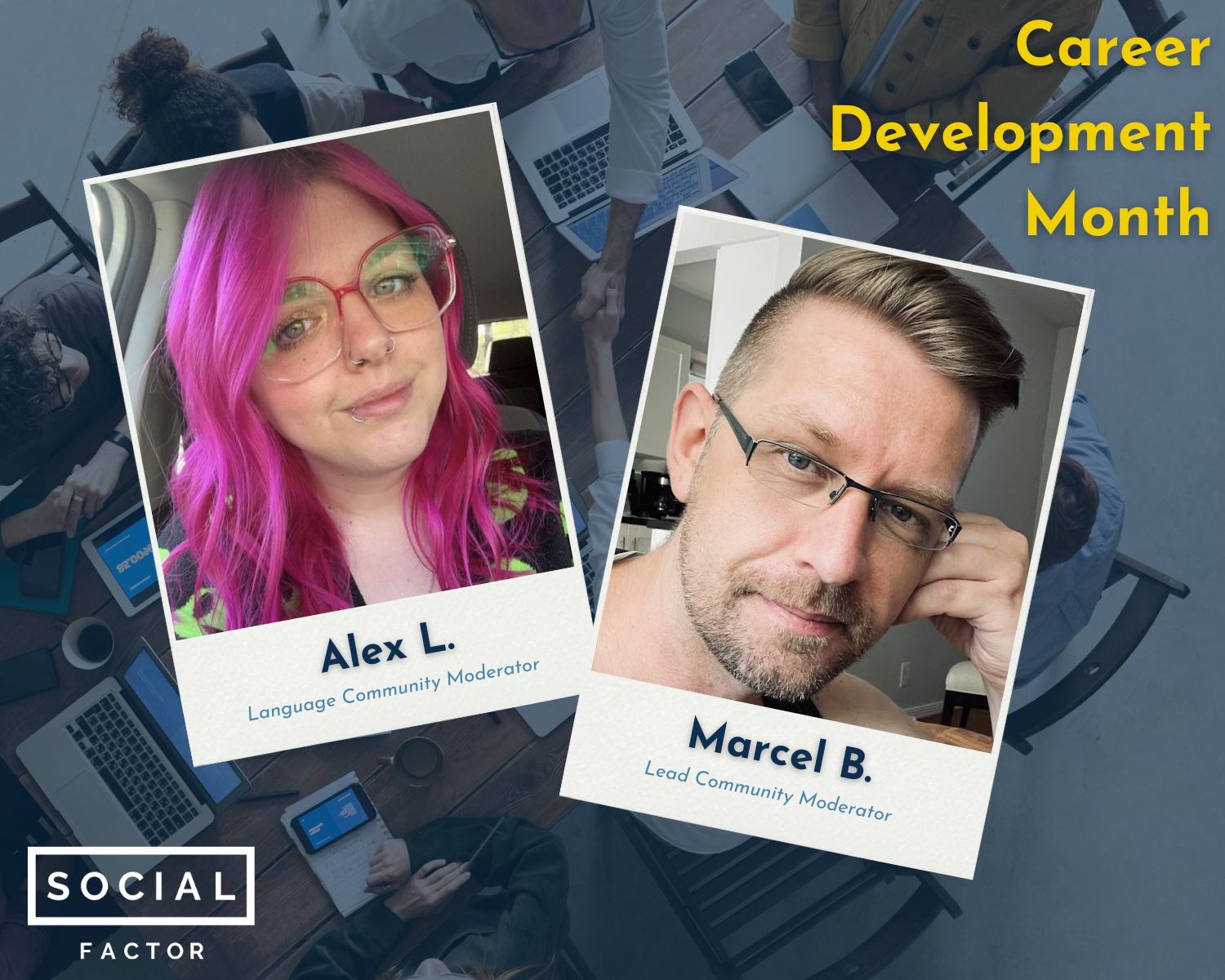
Social Factor
Finding Your Future at SF: Where Growth Meets Opportunity

Social media is essential in connecting people worldwide. Social media community moderators work behind the scenes to keep online spaces safe from bullies and trolls and positive for digital communities. These individuals actively patrol the virtual streets, keep content in check, and enforce community guidelines. Let’s look at the world of social media moderation, see why it matters, and discuss what steps you can take to find a career as a social media community moderator.
Community moderators take on a lot of responsibility, and it may look different from one community to the next. Moderators keep an eye on comments that are made under owned posts (the posts shared by the page), and if community members are allowed to post, moderators ensure those posts follow the community guidelines. Moderators answer questions from users, manage any recovery (when a community member is upset with the brand or community), and build rapport as the voice of the page.
While all that seems straightforward enough, there is a lot of nuance to what community moderators say and do. For one, it takes clear communication to get a message across and solve issues as they arise. Moderators often find themselves in challenging situations that involve problem-solving and outside-of-the-box thinking. Two, it takes a high EQ (emotional intelligence) to understand and connect with users. Being able to pay close attention to details and read into the words between the words ensures nothing is overlooked. Lastly, being familiar with different social media platforms gives moderators a better idea of what to expect from each community and gives more clarity about why community members interact differently from platform to platform. By understanding these skills, moderators help create a safer and more enjoyable online experience for everyone.

There are several roads to becoming a community moderator: education, experience, or both. There are no strict requirements; however, having a relevant degree or certifications can make you stand out. Equally, years of experience in the same field can work toward your advantage — degree or no degree. If education is your road, preferred areas of study often include communications, marketing, or related disciplines, laying the groundwork for understanding online community dynamics. If you’ve been working in the field, previous experience in community moderation, blogging, content creation, content calendar management, and customer service will make your resume shine.
Those looking to start their journey can find many entry-level opportunities to gain valuable experience. Engaging in internships or volunteer work in social media management or content moderation can provide valuable hands-on experience. These roles hone your skills and serve as stepping stones to move up into more senior positions. As you grow more confident as a community moderator, you can progress into roles with greater responsibilities, oversee larger communities, build project teams, and contribute to the development of moderation practices. Striking a balance between education and practical experience is the key to forging a successful path in social media moderation.

Being able to navigate stressful situations with finesse and confidence is essential when working in a social media moderation role. There are several necessary skills that will give you the upper hand in managing community moderation experiences:
Communication: In terms of communication skills, the ability to express thoughts clearly in writing is crucial. This extends to interpersonal skills and managing effective interaction with users and colleagues to build a positive online environment.
Technical: On the technical side, it’s essential to be familiar with the major social media platforms and how each audience may interact differently. Experience working with platform moderation tools and understanding how to recognize good user-generated content will give you an advantage over those who have no experience with those skills.
Problem-Solving: Critical thinking is essential, especially when it comes to managing conflicts or addressing sensitive issues within the online community. Being skilled at de-escalating disagreements and addressing delicate matters will lead to a more harmonious digital space and help protect page owners from negative feedback. Actively refining these skills will help you excel as a community moderator and feel a sense of responsibility and care for those experiencing negative emotions, no matter how aggressive their initial reactions may appear.

Most community moderation jobs won’t just fall into your lap. Take active steps by making a resume that focuses on your skills and experiences. Write a cover letter that shows your interest and matches your qualifications with the job, as well as your knowledge of the company you are applying to. Look for job openings on sites like LinkedIn, HireHive, and company websites, and apply to the ones that fit what you’re looking for. Get ready for interviews by learning about the company, practicing common questions, and sharpening your understanding of social media and moderation as a whole. Doing these things will help you land interviews, make you stand out, and hopefully get you that “When can you start?”
Remember that the most important part of being a social media moderator is shaping and protecting online communities. To all future community moderators: Keep refining your skills. Your contributions are essential for providing a safe and welcoming digital space. Embrace the responsibility, and know that your actions contribute to a better online community for all.
Whether you’re looking to become a community moderator or looking for the best around, contact Social Factor today.

Finding Your Future at SF: Where Growth Meets Opportunity

Transform your Digital Strategy by Using Tech and SaaS for Optimal Resource Utilization

Building Brand Loyalty Through Authentic Human Connection

Sail Through 2025 Social Media Budget Planning with Ease

How Brands Can Navigate Pre-Election Chaos on Social Media

Threads: Is It Worth It Yet?

Jack “Of All Trades” Dorsey Is No Longer on the Bluesky Board

Celebrating Diversity at Social Factor

Coachella 2024: What It Takes to Livestream the Festival on YouTube

How Fort Worth’s Social Factor Is Rocking ‘Human Connection’